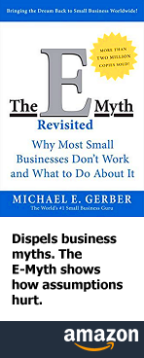Welcome
This site is dedicated to helping you realize your vision of success, intentionally. Learn to avoid the missteps that impact so many, so you can reach your goals.
You'll find information here that goes beyond the ordinary. I share insider insights into issues and challenges that most only learn through bitter experience.
I'll share the lessons I learned in face to face conversations with real business people. I learned the lessons I'll share from real entrepreneurs who started, grew and sold real businesses.
Here you'll discover the underlying drivers and root causes of success and failure.
After earning my MBA and certified business advisor credentials, I've been honored with the privilege of coaching more than
• 100 startups along with over
• 1,000 business clients, delivering more than
• 10,000 hours of coaching and helping clients raise over
• 10,000,000 dollars in business growth funding
I built this site, recorded these interviews and suggested these books to share with you the many lessons my clients have taught me.
 Kevin Your Business Coach
Kevin Your Business Coach


